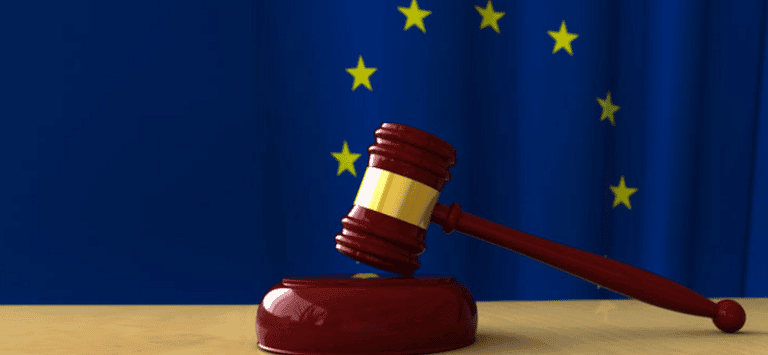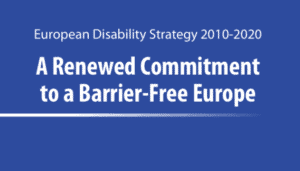End of May 2016, the European Commission proposed a directive aimed at revising the audio-visual media services (AVMS) directive from 2010.
Since the adoption of the previous directive, the European Union has ratified the UN Convention on the Rights of Persons with Disabilities (UNCRPD). It establishes the right to „enjoy access to television programmes in accessible formats” in Article 30.
In spite of this, the European Commission has decided to delete the article on accessibility in the new draft, an article which, so far, stated that “Member States shall encourage media service providers (…) to ensure that their services are gradually made accessible to people with a visual or hearing disability”. The argument used to explain this decision is that the European Accessibility Act (EAA) might create such accessibility obligations for TV. However, the EAA is currently only a proposal that might not be adopted in its current state. Indeed, there are already voices in the European Parliament who argue in favour of deleting AVMS from the scope of the EAA. And even if it is adopted, it is unclear how long the adoption and implementation process might take. We believe that this is the opportunity for a strong harmonised result, where one act complements and does not replace elements of the other. In order to achieve this, the revision should contain compulsory accessibility targets in the AVMS directive that are then specified through functional requirements in the EAA.
Furthermore, it is important to point out that about 800.000 deaf sign language users as well as about 51 Million hard of hearing persons live in the EU. Additionally, the European Blind Union estimates that there are more than 30 million blind and partially sighted persons in Europe. Making AVMS accessible to these groups would allow broadcasters to significantly increase their viewership and thus their financial returns. In not creating binding accessibility legislation, the EU institutions would not looking ahead, ignoring the demographic changes Europe is facing. Indeed, the number of hearing and visually impaired Europeans can be expected to increase in the coming decades due to population ageing. Furthermore, European citizens who are currently non-disabled are expected to acquire a hearing or visual impairment later in life. At the same time, the technical challenges to creating accessible AVMS are rapidly shrinking, as subtitles, sign language interpretation, audio description and audio subtitles are becoming increasingly easy to provide.
We thus urge the members of the European Parliament and the Council to amend the current version of this draft directive to include binding accessibility targets for AVMS. Only if both acts contain such compulsory requirements, the right of accessibility for persons with disabilities that is enshrined within the UNCRPD is guaranteed to become enforceable across the EU.
The statement of the European Disability Forum on this revision can be found here: http://cms.horus.be/files/99909/MediaArchive/ICT/Final_EDF_Position_AVMSD_Revision.pdf
The draft directive is available in all EU languages here: http://eur-lex.europa.eu/legal-content/EN/TXT/?qid=1464618463840&uri=COM:2016:287:FIN
The original directive (including its article 7 on accessibility) can be found in all EU languages here: http://eur-lex.europa.eu/legal-content/EN/ALL/?uri=CELEX%3A32010L0013












